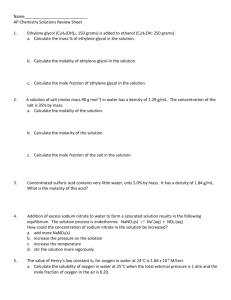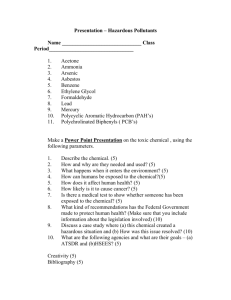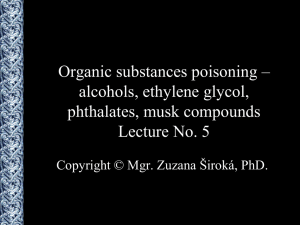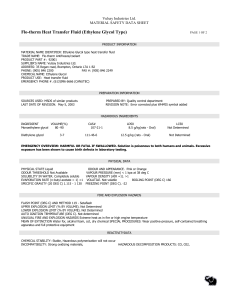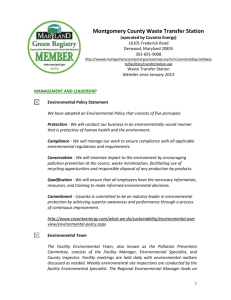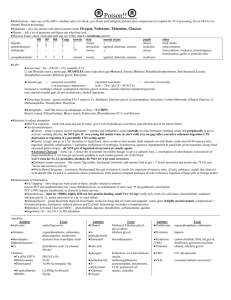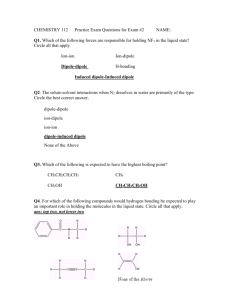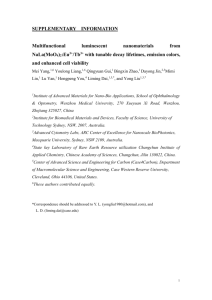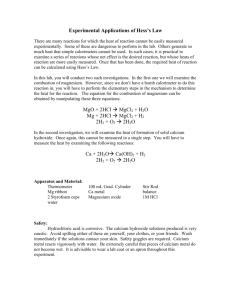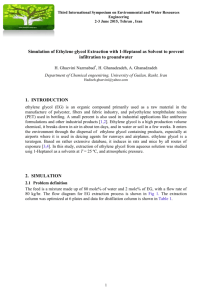Chapter 2
advertisement
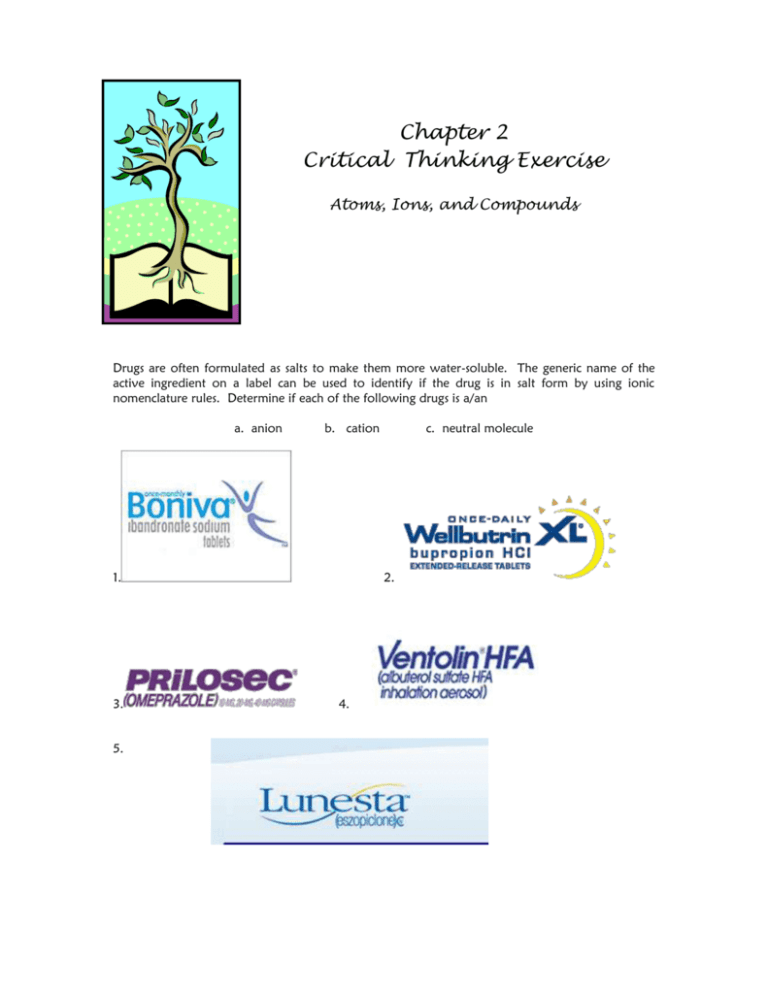
Chapter 2 Critical Thinking Exercise Atoms, Ions, and Compounds Drugs are often formulated as salts to make them more water-soluble. The generic name of the active ingredient on a label can be used to identify if the drug is in salt form by using ionic nomenclature rules. Determine if each of the following drugs is a/an a. anion b. cation 1. 3. 5. c. neutral molecule 2. 4. Both molecular and ionic compounds are used in consumer products. Package labels list these ingredients. The following active and inactive ingredients are found in a Rolaids tablet. Active Ingredients Per Tablet: Calcium Carbonate 550 mg; Magnesium Hydroxide 110 mg Inactive Ingredients Dextrose; Flavoring; Magnesium Stearate; Polyethylene Glycol; Pregelatinized Starch; Sucrose 6. Which of the following is not an ionic compound found in a Rolaids tablet? a. magnesium stearate b. calcium carbonate c. starch d. magnesium hydroxide e. none of the above 7. What is the formula for magnesium hydroxide? a. MgOH b. Mg2OH c. Mg(OH)2 d. MgOH2 e. (OH)2Mg 8. Build the model of dextrose (D-glucose). What is the molecular formula for dextrose? a. C6H12O6 b. C5H12O6 c. C6H14O7 d. C5H14O4 e. C6H16O7 9. Build the model of ethlene glycol. What is the molecular formula for ethylene glycol, used to make the polymer polyethylene glycol? a. C3H6O2 b. C2H6O2 c. C3H5O2 d. C2H5O2 e. C3H7O2 10. Ethylene glycol is a component of antifreeze. It is toxic to humans and pets if ingested. The body converts ethylene glycol to glycolic acid and then oxalic acid, a toxin. Oxalic acid is a carboxylic acid and reacts in the body to form calcium oxalate, a component of kidney stones. Build the model of oxalic acid. Give the chemical formula for calcium oxalate. a. CaC2H2O4 b. Ca(C2H2O4)2 c. Ca(C2O4)2 d. CaC2O4 e. Ca(C2H4O4)2

